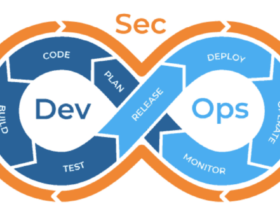In today’s interconnected digital landscape, the demand for skilled cybersecurity jobs has never been higher. As businesses and individuals increasingly rely on digital platforms, the need for experts to safeguard sensitive information and networks has become paramount. Cyber threats are evolving at an unprecedented pace, creating a dynamic and challenging environment that offers immense opportunities for those seeking a rewarding career. This article will explore the current state of the cybersecurity job market, common roles, essential skills, and how you can position yourself for success in this critical field.
The Exploding Demand for Cybersecurity Professionals
The digital transformation across all industries has created a massive skills gap in cybersecurity. Organizations worldwide are grappling with sophisticated cyberattacks, data breaches, and regulatory compliance pressures, all of which underscore the urgent need for robust security measures. According to Cybersecurity Ventures, there will be 3.5 million unfilled jobs in the cybersecurity industry through 2025. This staggering figure highlights a field ripe with opportunity for aspiring professionals.
The growth is fueled by several factors:
- Rapid Digitization : More businesses are moving operations and data to digital platforms and cloud environments.
- Sophisticated Cyber Threats : Ransomware, phishing, and advanced persistent threats (APTs) are becoming more complex and frequent.
- Regulatory Compliance : Strict data protection regulations (like GDPR and CCPA) necessitate dedicated cybersecurity teams.
- Rise of AI and IoT : The proliferation of Artificial Intelligence and Internet of Things devices introduces new attack vectors that require specialized security expertise.
Key Cybersecurity Job Roles and Responsibilities
The cybersecurity field offers a diverse range of roles, each with unique responsibilities and required skill sets. Here are some of the most in-demand cybersecurity jobs:
1. Security Operations Center (SOC) Analyst
SOC Analysts are on the front lines of defense, monitoring security systems, analyzing alerts, and responding to potential incidents. They work in 24/7 security operations centers, ensuring continuous vigilance against threats. This role is often a great entry point into the cybersecurity field.
2. Cybersecurity Engineer
Cybersecurity Engineers are responsible for designing, implementing, and maintaining secure computer systems and networks. They build the fortresses, developing and integrating security tools such as firewalls, intrusion detection systems, and encryption protocols. Their work is crucial in preventing breaches by building security into the infrastructure itself.
3. Penetration Tester (Ethical Hacker)
These professionals are the “good guys in black hats.” Penetration Testers ethically hack into systems to identify vulnerabilities before malicious actors can exploit them. They simulate real-world attacks, providing invaluable insights that help organizations strengthen their defenses.
4. Cloud Security Specialist
With the widespread adoption of cloud computing (AWS, Azure, GCP), Cloud Security Specialists focus on protecting data and applications hosted in cloud environments. They design and implement security controls specific to cloud platforms, ensuring data integrity and compliance in the cloud.
5. Governance, Risk, and Compliance (GRC) Analyst
GRC Analysts help organizations navigate the complex landscape of security regulations and frameworks. They assess security postures, develop policies, and ensure regulatory compliance, minimizing legal and financial risks associated with data breaches. The demand for GRC expertise is particularly on the rise due to evolving regulatory requirements.
6. Information Security Analyst
Information Security Analysts are the gatekeepers of an organization’s network and data. They are responsible for identifying vulnerabilities, resolving them, and responding to cyber incidents. They also stay abreast of the latest security trends and continuously refine security measures.
Essential Skills for Cybersecurity Professionals
To thrive in any of these cybersecurity jobs, a blend of technical and soft skills is crucial:
- Technical Skills:
- Networking: Deep understanding of network protocols (TCP/IP), firewalls, and intrusion detection systems.
- Operating Systems: Proficiency in Linux, Windows, and macOS.
- Programming/Scripting: Knowledge of Python, PowerShell, or other scripting languages for automation and analysis.
- Cloud Platforms: Familiarity with AWS, Azure, or Google Cloud security.
- Threat Intelligence & Incident Response: Ability to analyze threats and respond effectively to security incidents.
- Vulnerability Assessment & Penetration Testing: Understanding of tools and methodologies for identifying and exploiting vulnerabilities.
- Soft Skills:
- Problem-Solving: The ability to analyze complex situations and devise effective solutions under pressure.
- Critical Thinking: Essential for identifying anomalies and anticipating potential threats.
- Communication: Clearly explaining complex technical issues to non-technical stakeholders.
- Continuous Learning: The cybersecurity landscape constantly changes, requiring ongoing education and adaptation.
- Teamwork: Collaborating effectively with other IT professionals and departments.
The Value of Cybersecurity Certifications
While a strong academic background (e.g., a Bachelor’s degree in Computer Science or Cybersecurity) is often beneficial, industry certifications play a significant role in demonstrating specialized knowledge and enhancing career prospects in cybersecurity jobs. Some of the most highly regarded certifications include:
- CompTIA Security+: A foundational certification suitable for entry-level roles, validating core security skills.
- Certified Ethical Hacker (CEH): Focuses on penetration testing and ethical hacking techniques.
- Certified Information Systems Security Professional (CISSP): A globally recognized certification for experienced security professionals, covering a broad range of security domains.
- Certified Information Security Manager (CISM): Ideal for those pursuing management-level cybersecurity roles, emphasizing governance and program management.
- GIAC Certifications: Offered by the Global Information Assurance Certification, these are highly technical and specialized certifications for various cybersecurity domains.
These certifications not only validate your skills but can also lead to higher earning potential. Entry-level certified professionals often earn 15-20% more than their non-certified counterparts, and advanced certifications can lead to six-figure salaries. For insights into average cybersecurity salaries, you can refer to the EC-Council’s Cybersecurity Salary Guide.
Navigating the Future of Cybersecurity Jobs
The future of cybersecurity jobs is characterized by continuous evolution and increasing specialization. Trends to watch include:
- AI and Machine Learning in Security: AI is being leveraged for advanced threat detection and automation, but also presents new attack vectors. Professionals skilled in AI security are in high demand.
- Zero Trust Security: This model, based on the principle of “never trust, always verify,” is gaining traction, requiring expertise in implementing and managing such frameworks.
- IoT and OT Security: As more devices become connected, securing the Internet of Things and Operational Technology (industrial control systems) is becoming a critical area.
- Data Privacy: With increasing data regulations, roles focusing on data privacy, compliance, and privacy-enhancing technologies will continue to grow.
The cybersecurity skills gap remains a significant challenge, with millions of positions unfilled globally. This persistent shortage means that qualified individuals entering the field will find abundant opportunities and competitive salaries. For further details on the global cybersecurity workforce gap, you can consult reports from sources like StationX’s Cybersecurity Job Statistics.
The world of cybersecurity jobs is not just a career; it’s a critical mission to protect our digital world. With a strong and growing demand for skilled professionals, competitive salaries, and diverse career paths, cybersecurity offers a compelling and rewarding future. By acquiring the right technical skills, pursuing relevant certifications, and committing to continuous learning, you can embark on a dynamic journey that not only secures your own future but also contributes significantly to the security of businesses and individuals worldwide.
Ready to start your journey in cybersecurity or looking to advance your existing career? Explore relevant training programs and further resources on JurnalIn’s cybersecurity section.









